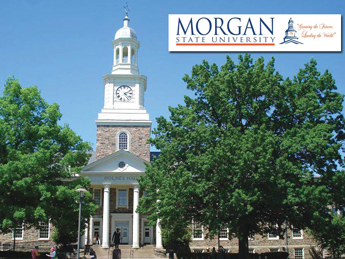BALTIMORE, Md. – There are few things as dear to me as my Nation, my family and Morgan State University, where I went to school and graduated. All three of these institutions helped to develop me, nurture, protect and give me a chance to make something of myself.

So when I heard student leader Chinedu Nwokeafor was working to bring the Honorable Minister Louis Farrakhan of the Nation of Islam, my leader and my teacher, to my alma mater, I was excited and ecstatic. I envisioned students hearing from this man of impeccable character and this champion of struggle with a nearly 60-year track record of service deliver words to inspire young Blacks to aspire to new heights of achievement and leadership.
I envisioned seeds planted in young minds that would grow quickly and others that would grow over time, but young minds seeded with truth and a word about education as a tool for self-determination would never be the same.
I envisioned members of my college fraternity, the Alpha Iota Chapter of Kappa Alpha Psi, perhaps joining with other frats on campus, and giving the Minister an award in a show of respect, gratitude and brotherhood.

I was worried when students felt stymied and that just when they felt things were coming together, things fell through. But when Student Minister Carlos Muhammad of Muhammad Mosque No. 6 in Baltimore, my hometown, invited me to a meeting of community leaders, students, Morgan State administrators and university President David Wilson, my hopes rose.
In the April 7 meeting it was agreed that there were some missteps by students and administrators in handling the proposed event.
Morgan State University President Wilson spoke plainly, saying in these modern times university presidents allow students to choose who comes to the campus. The students make decisions and standard operations by the school are followed for events and the rules don’t change based on the speaker, Dr. Wilson said. He even asked how and why this matter, which should have been a routine matter, was at his desk? The matter came to his desk as word spread about concern Min. Farrakhan was not welcome at MSU and other attempts to have him on campus–prior to Dr. Wilson’s tenure–had been blocked.
Dr. Wilson stated Morgan State does not discriminate and the university had a commitment to free speech.
Dr. Wilson spoke of the need for students to be critical thinkers who pursue knowledge and hear different opinions. These are the values on which the university rests, he added.
The meeting included President Wilson; Dr. Kevin Banks, vice president for student affairs; student leader Chinedu Nwokeafor; Student Government Association President Alvin Hill and Vice President Rashad Staton; Student Minister Carlos Muhammad and some of the Muslims from Mosque No. 6 and Nation of Islam regional student Minister Abdul Khadir Muhammad, who came up from Washington, D.C.; representatives of BUSI, which is offering the free conference; myself as Final Call editor; and, WOLB radio host and former State Senator Larry Young.
As we consider the plight of Black America, we must consider the value and the importance of our historically Black colleges and universities which continue to produce disproportionate numbers of engineers, doctors, lawyers and overall graduates. These institutions like Morgan State University take students others would not and give them a chance. I had potential but I needed someone to care for me and help me to grow. The proper education of Black students and positioning them to become leaders is vital to our future.
These colleges need our strong support and backing. They need the active involvement of alumni to be there to help and evolve institutions that are so dear and so important.
We need a stronger unity among historically Black colleges and universities and greater networking between students at these institutions. We need entrepreneurship and job creation as opposed to only job seeking.
The United States is unable to solve her economic woes and Blacks still lag behind economically. The Urban League’s State of Black America 2014 report again documented Black suffering and other studies have shown Blacks regularly earn about one-third of what Whites earn for the same jobs or occupations.
“Though the Black unemployment rate briefly and narrowly dipped below 12 percent for the first time since 2008 at the end of last year, 42 percent of Black unemployed workers are long-term unemployed and 28 percent have been jobless for at least a year. The rate of underemployment for African Americans was 20.5 percent, compared to 11.8 percent for White workers and 18.4 percent for Hispanic workers,” the State of Black America 2014 recounted. “In addition to these weaknesses in the labor market, income inequality has increased over the last 30 years as the gap between low, middle and high incomes has widened.”
A study by the Annie E. Casey Foundation released April 1 revealed Black children face the most barriers to success as a gap that begins at birth widens as they grow older. Black children ranked dead last on the foundation’s success index. We know that Black youth unemployment remains horrendous and in these economic times, creating a way for yourself is a necessity, not a luxury.
We must learn the lessons of respect, dialogue and unity and we must learn to Do For Self.
But more than economics and money, the question is how does education make students better people, not just wealthier people? True education teaches lessons about integrity and independence and those are probably the most important lessons we can and must learn.
(Final Call editor-in-chief Richard B. Muhammad can be reached at [email protected]. You can also follow him on Facebook and @RMfinalcall on Twitter.)












